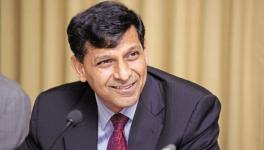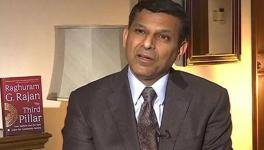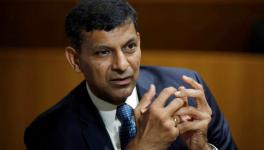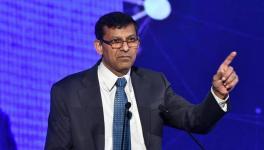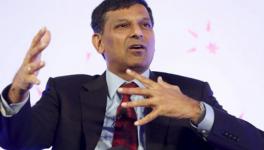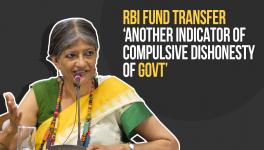RBI Deputy Governor Viral Acharya Quits 6 Months Before His Term Ends
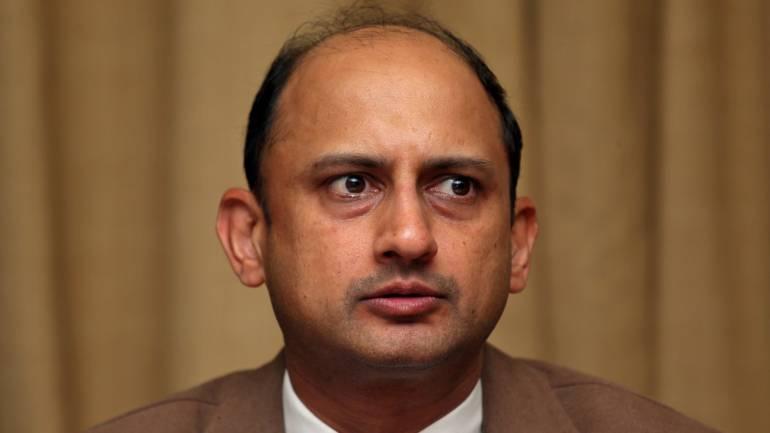
Image Courtesy: Money Control
Mumbai: Reserve Bank of India (RBI) Deputy Governor Viral Acharya, who was in-charge of the monetary policy department, has resigned six months before the scheduled end of his term, sources said on Monday.
This is the second-high profile resignation in the past six months at RBI. In December, Governor Urjit Patel resigned nearly nine months before the end of his schedule term over differences with the government.
Acharya had joined the central bank on January 23 last year after Patel was elevated to the post of Governor in September 2016.
The RBI is now left with three deputy governors -- N S Vishwanathan, B P Kanungo and M K Jain.
Reacting to news reports on Acharya quitting, the RBI said in a statement on Monday said that his resignation was “under consideration”.
“A few weeks ago, Dr Acharya submitted a letter to the RBI informing that due to unavoidable personal circumstances, he is unable to continue his term as Deputy Governor of the RBI beyond July 23, 2019. Consequential action arising from his letter is under consideration of the Competent Authority,” a statement issued by Yogesh Dayal, Chief General Manager, RBI, read.
Acharya, a New York University economics professor who once called himself the 'poor man's Raghuram Rajan', was appointed for three years. He took over at a time when the central bank was facing criticism for repeated changes in the rules related to deposit and withdrawal of money, post-demonetisation.
Acharya was considered a strong believer in the central bank’s independence and autonomy, which he considered crucial for economic progress and financial stability, and had even warned that any government undermining their monetary authorities would face the wrath of financial markets and economic fires.
Acharya had said many nations are seeing the central bank independence being compromised and asserted that independent central bankers will remain undeterred.
The RBI has gone through a tumultuous time in the past two and half years, starting with a change in policymaking where rate-setting shifted to a six-member panel that experts commended as a step in the right direction, to the surprise resignation of Governor Urjit Patel in December 2018.
Speculation about Acharya’s exit had started on the day of his boss resignation, forcing the RBI to deny it then.
Acharya went public with his thinking on the sensitive topic of central bank independence during a speech at the peak of the run-ins between the Mint Road and the Government that culminated in Patel’s departure in December 10 last which included specific mentions of points of differences like government eying RBIs capital buffers.
Citing an Argentinian example, where governor Martin Redrados resignation over differences with the government was not taken kindly, Acharya had warned of the consequences that await.
Governments that do not respect central banks’ independence will sooner or later incur the wrath of financial markets, ignite economic fires, and come to rue the day they undermined an important regulatory institution; their wiser counterparts who invest in central bank independence will enjoy lower costs of borrowing, the love of international investors, and longer life spans, he had said in the October 26, 2018 speech delivered in Mumbai.
He had further said that while the theme of independence is of great sensitivity, it is of even greater importance to our economic prospects.
Acharya, who will return to the New York University’s Stern Business School in August instead of in 2020, felt the RBI has made good progress in earning its independence, pointing to the formation of the rate-setting monetary policy committee.
To secure greater financial and macroeconomic stability, these efforts (like MPC) need to be extended to effective independence for the Reserve Bank in its regulatory and supervisory powers over public sector banks, its balance-sheet strength, and its regulatory scope.
Such an endeavour would be a true inclusive reform for the future of our economy, Acharya had said in the same speech.
In the speech that was delivered over a month before Patel’s resignation was made public and the subsequent appointment of retired career bureaucrat Shaktikanta Das as the Governor, Acharya had said that appointing a non-technocrat to a key position is among the ways in which the independence is compromised.
Appointing government (or government-affiliated) officials rather than technocrats to key central bank positions, such as governor, and more generally, senior management, is among the ways the institutional autonomy can be undermined, he had said.
Others may include a steady attrition and erosion of statutory powers of central bank, blocking a rules-based approach and setting up parallel regulatory agencies with weaker statutory powers, he had said.
When the governance of the central bank is undermined, it is unlikely to attract or be able to retain the brightest minds that thrive on the ability to debate freely, think independently, and effect changes, attrition of central bank powers results in attrition of its human capital and deterioration of its efficiency and expertise over time, he had said.
Get the latest reports & analysis with people's perspective on Protests, movements & deep analytical videos, discussions of the current affairs in your Telegram app. Subscribe to NewsClick's Telegram channel & get Real-Time updates on stories, as they get published on our website.













